
The guitar is a tough instrument, with many different techniques, fingerings, and places to start. Any beginner can be easily turned off the first time they dig into learning how to play. It takes practice and commitment to get your playing to a place where you can consider yourself a true guitar player.
Don’t let that intimidate you, however. It’s all about learning the basics, having fun, starting slowly, and picking it up-skill by skill. Here are some beginner tips for learning guitar.
Tip #1: Set Aside the Time to Practice

You can’t learn the guitar without putting in the time and patience to practice. Hone your skills. Practice regularly, even if it’s just thirty minutes every night after work. Be patient. It takes time to get good. There is no shortcut or substitution for a regular practice schedule.
Tip #2: Warm Up Before Practicing
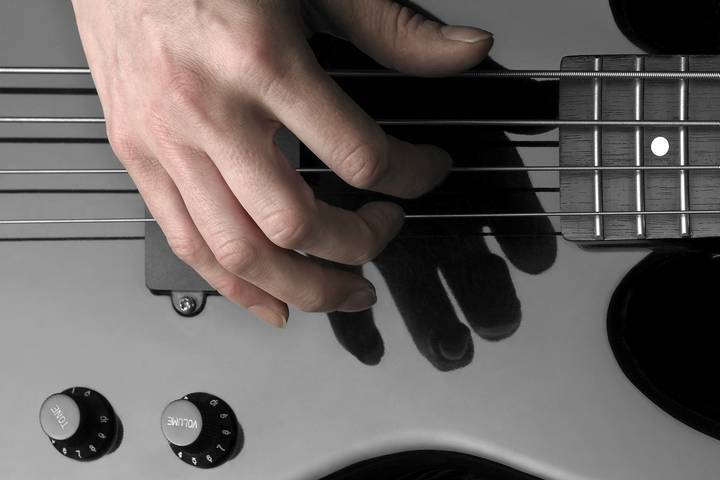
Make sure your fingers are warmed up before practicing. Practice a few scales or finger exercises to get blood flowing before sitting down to practice.
Tip #3: Choose a Guitar That Gets You Excited About Playing

Eventually, you will want to find a guitar representing you and your personality. A high-quality guitar with nitrocellulose lacquer in a colour of your choice is the gold standard. Research different types of guitar finishes, the big brands like Gibson and Fender, and what your favourite guitarists prefer to play.
Tip #4: Play with a Metronome
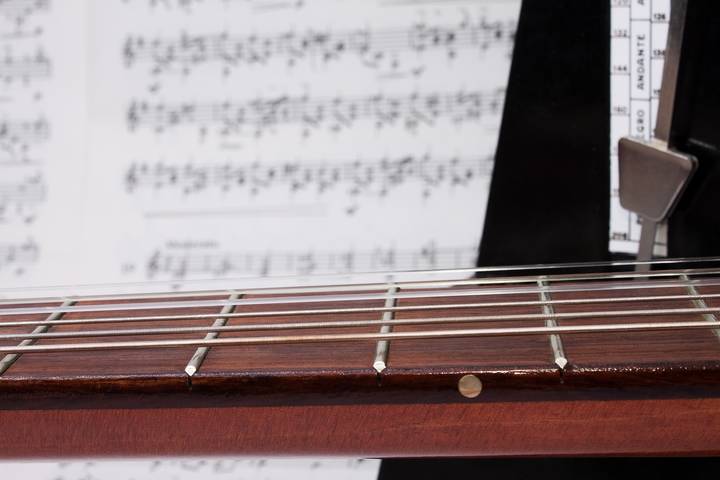
A metronome ticks back and forth on a beat. It will keep you on the beat and help you fine-tune your rhythm, which is essential for any beginner. It will also make you more comfortable as a player before you play with someone else, a band, or someone you care about.
Tip #5: Set Realistic Goals

Set goals on the guitar. It could be to learn a specific song, play a certain technique, or play at a certain speed. It could even be the goal of setting aside 30-60 minutes every night to make sure you practice. Be realistic about what you can achieve and take the steps to make it happen.
Tip #6: Learn the Technical Basics
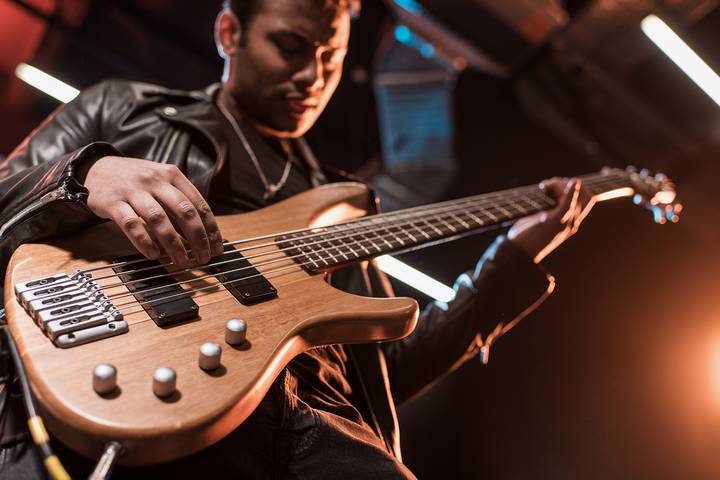
Though it’s not as fun as learning a guitar solo or an amazing chord sequence on guitar, the technical basics are important. Learn how to use a guitar tuner, how to string the guitar in case a string breaks, what the guitar strings are named, and how to hold a guitar pick correctly.
Tip #7: Play Easy Songs First and Start Slow

Don’t jump into learning just anything. Start slow. Learn to play easy songs first in your genre. You’d be surprised when you start to sit down and learn songs. How many are simple enough for beginners to work on and eventually play?
Tip #8: Invest Time in Songs Over Technique
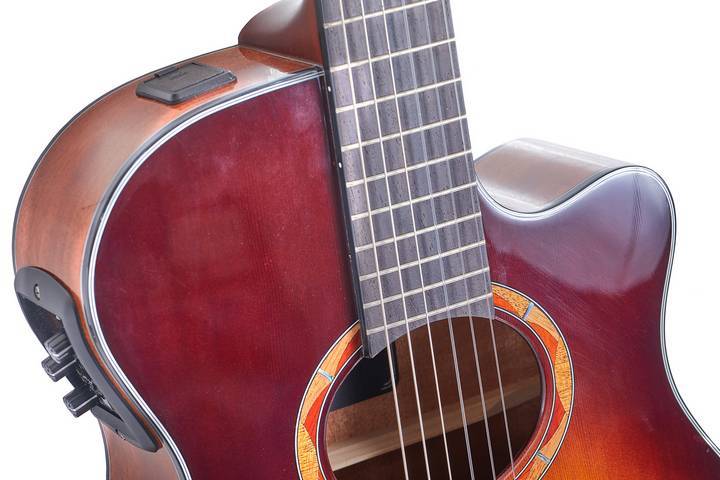

The technique is important. Notes, scales, and chords are fundamentals. But don’t stop there by learning a technique and never using it. Learn songs. Feel the real power of a technique when applied to a song you enjoy playing. This is a lot more fun and worthwhile than repeating the same practice repeatedly.
Tip #9: Make Sure the Notes Ring Out with Clarity


Whether it’s chords or individual notes you are picking, ensure your fingers are placed on the fretboard in a way where the fingering is accurate and also where the notes ring out. As you’re learning chords, this may be the most difficult part.
Tip #10: Keep Your Wrist Loose While Strumming


Learning guitar is as much about the left hand as the right. When you strum, keep your wrist loose. This will add fluidity to your style. It decreases pain and tightness in your strumming hand and will allow you to play faster and more complicated sequences.
Tip #11: Learn Techniques from Multiple Teachers
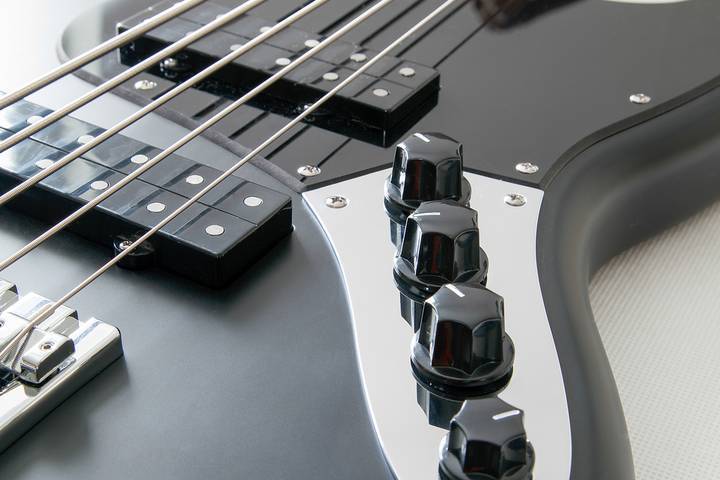

Learn from different teachers, sources, and players. After you start to get to an intermediate or advanced level, open up your playing by learning new things.
Learn songs from different artists. Look at practicing techniques you’ve never played before. The sky is the limit.
Tip #12: Play with Other Players at and Above Your Skill Level



Once you get some confidence, play alongside other guitar players. You and other players can trade techniques and songs, and it may challenge you to learn things you would never otherwise learn. Even if you’re just playing with one other person, this has been shown to help improve the level of one’s playing over time.
Tip #13: Learn the Style You Love to Play
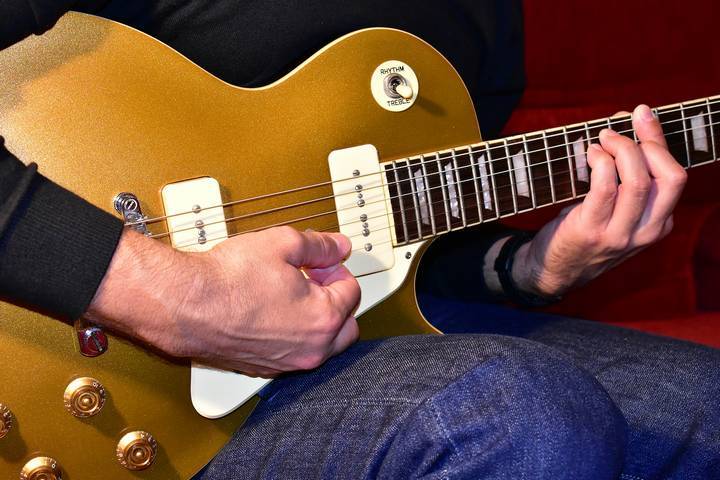

If you want to play metal, there is no sense in learning to play country music or vice versa. Ensure you’re learning the music that inspires you to pick up the instrument in the first place. Many players quit because they’re not learning a genre or style that interests them.
Tip #14: There Will Always Be Something to Learn
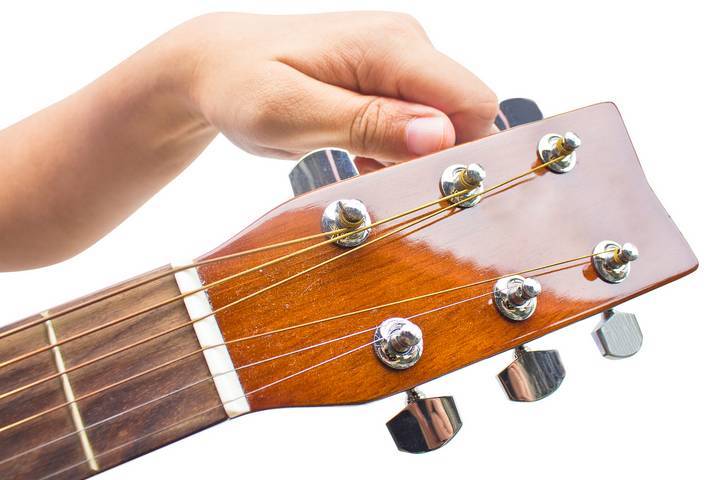

Even expert, advanced guitar players learn new skills, chords, and techniques. There is always something new to expand your playing, strengthen and further your abilities, and hopefully motivate you to play. Never stop being a student.









